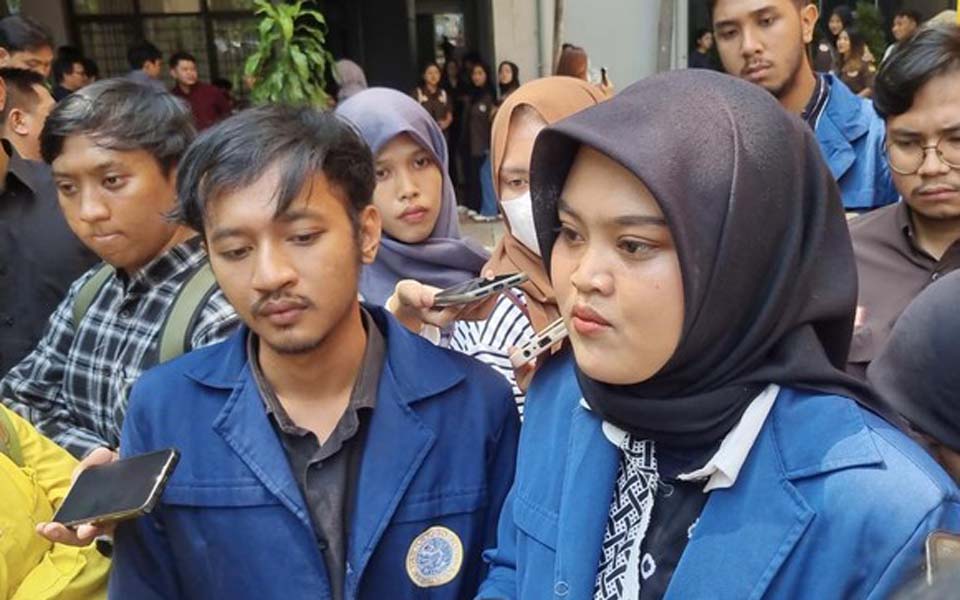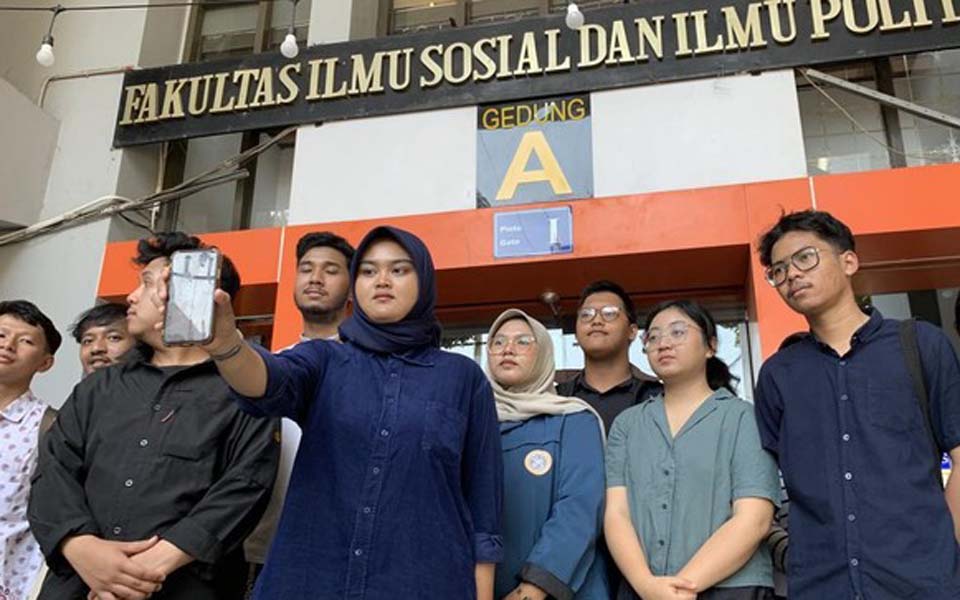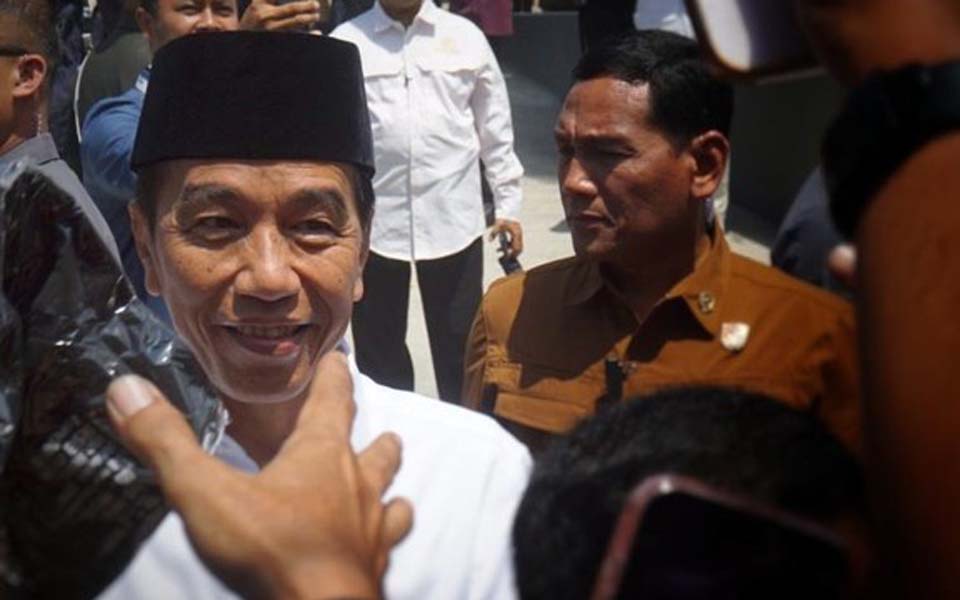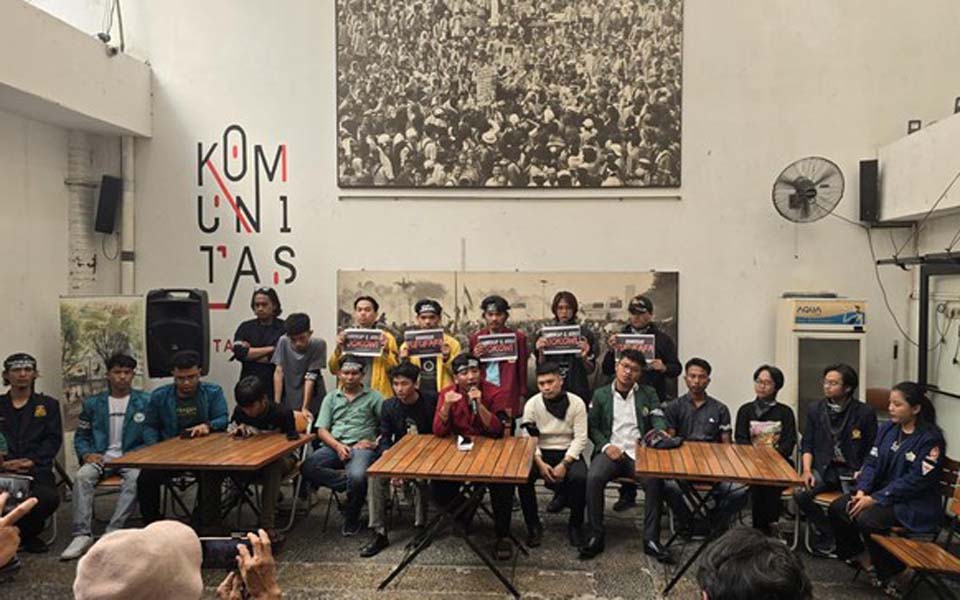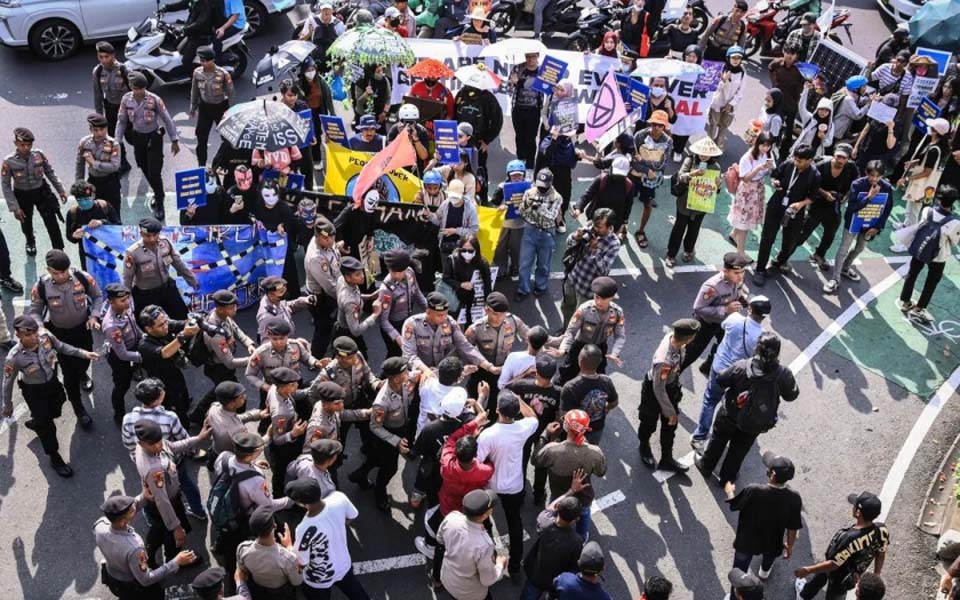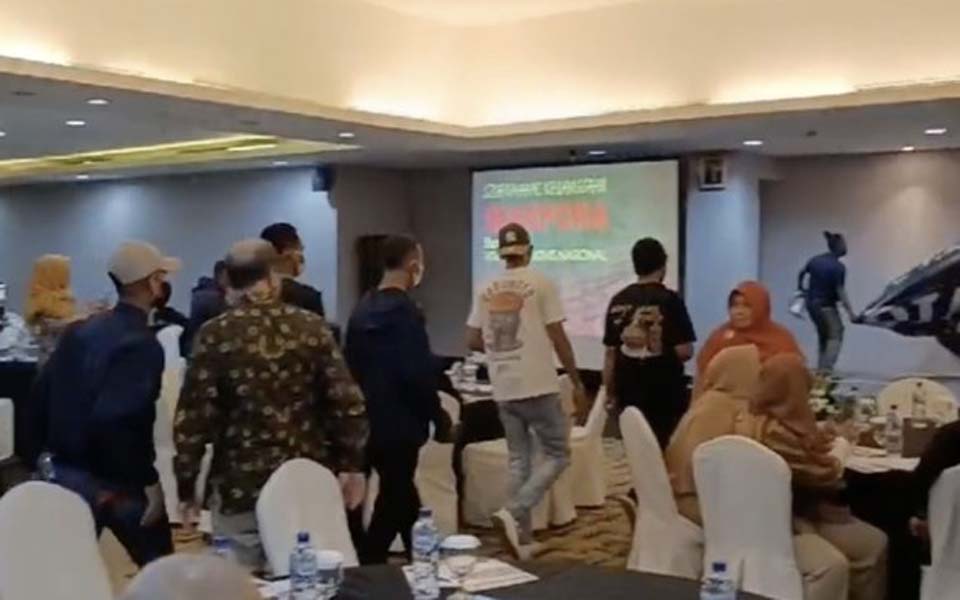Jakarta – Scores of people have been arrested and convicted using the “rubber” (catchall) articles in the Information and Electronic Transaction Law (UU ITE) as a result of a rise in criticism against the government.
Association of UU ITE Victims (Paku ITE) chairperson Muhammad Arsyad says that this is very much contradicts the sweet promises made by the government of President Joko “Jokowi” Widodo which repeatedly calls for the legal process to be transparent so that the public will not be afraid of revealing injustice and impropriety.
Arsyad likens the Widodo regime to one which is using the theory of the “poco-poco dance” – a popular Indonesian line dance – in upholding the law. He believes that there has been no advance in just and transparent law enforcement during the Widodo era.
“The government encourages the public to reveal impropriety, but then arrests them using the UU ITE. This conflicts with and is out of sync with its pledges. The regime is again using the poco-poco theory, forward two steps, but then back again by two steps, there is no forward progress”, Arsyad told CNN Indonesia on Friday March 8.
Arsyad cited the arrest of fisherperson Dadap for protesting the Jakarta Bay reclamation project bridge and last week’s arrest of Robertus Robet for allegedly insulting the TNI (Indonesian military) under the UU ITE as indications of efforts by the government to silence citizens expressing their rights and views.
“Only a government which is corrupt, anti-criticism, and doesn’t want to be corrected would want to maintain the UU ITE’s rubber articles”, asserted Arsyad.
Furthermore said Arsyad, the rubber articles in the UU ITE only plant the seeds of hatred and animosity among members of society. Instead of resolving problems or strengthening reconciliation, the UU ITE instead reinforces problems because trivial cases end up with people behind bars.
Increasing use
Based on the latest data gathered by Paku ITE, the number of victims of these rubber articles has risen in concert with the momentum of the 2019 presidential elections (pilpres). By early 2019, police have used the UU ITE in scores of cases.
“So there were 30 or more victims of the UU ITE who have already been processed by the police by early 2019. This is an increase on last year. There have been tens of thousands of reports submitted to the police based on the UU ITE”, said Arsyad.
Prior to 2019, Paku ITE also recorded an increase in the number of victims of the UU ITE in the lead up to the 2018 simultaneous election of regional heads (pilkada).
Arsyad’s conclusion is that it is becoming increasingly clear that the UU ITE is be used to silence political rivals. Because of this therefore, he is convinced that the UU ITE will continue to be used even after the 2019 pilpres is over.
“So we have recorded that the number of UU ITE victims has increased because of political grudges. It will be maintained even after the April 2019 pilpres is over. There will be many interventions and political grudges which use the UU ITE”, said Arsyad.
Arsyad hopes that whoever the next government is, it will be prepared to accept criticism and have the courage to abolish the UU ITE’s rubber articles. So far the Paku ITE has only heard a commitment to abolish the UU ITE from the National Human Rights Commission (Komnas HAM).
The problem however, said Arsyad, is that the government and the parliament are still not willing to take any serious steps to abolish these articles.
“The problem with the government and the DPR is that they see whoever is in the majority as being correct. Although they are prepared to listen to complaints they are not yet willing to all sit down together”, he said.
Educating the public
Paku ITE will soon be launching a book to educate the public containing stories by the law’s victims and the response by criminal and language experts to the UU ITE. This endeavor will start off from the fact that 65 percent of the public who have been indicted under the UU ITE do not understand the cases that they are embroiled in.
Yet almost 30 percent of the public who have been convicted under the UU ITE’s rubber articles have received a suspended sentence. Meanwhile only 6 percent of people have won their cases or been found not guilty.
“So far the heaviest sentence for [convictions under the] UU ITE have been against musician turned politician Ahmad Dhani and [former Jakarta governor] Basuki T Purnama or Ahok”, said Arsyad.
Meanwhile Widodo has asked the police to carry out reforms and for law enforcement be carried out professionally, justly and transparently. Widodo conveyed this when he was the inspector at the national police’s 72nd anniversary at the Senayan Sports Stadium in Jakarta on Wednesday July 11 last year.
Widodo also asked that the national police avoid the culture of corruption and said that police must prioritise a humanist approach when handling problems and avoid excessive actions in order to gain the public’s’ trust. (dal)
[Translated by James Balowski. The original title of the article was “Pengamat: Rezim Jokowi Pakai Teori ‘Poco-poco’ di UU ITE”.]







